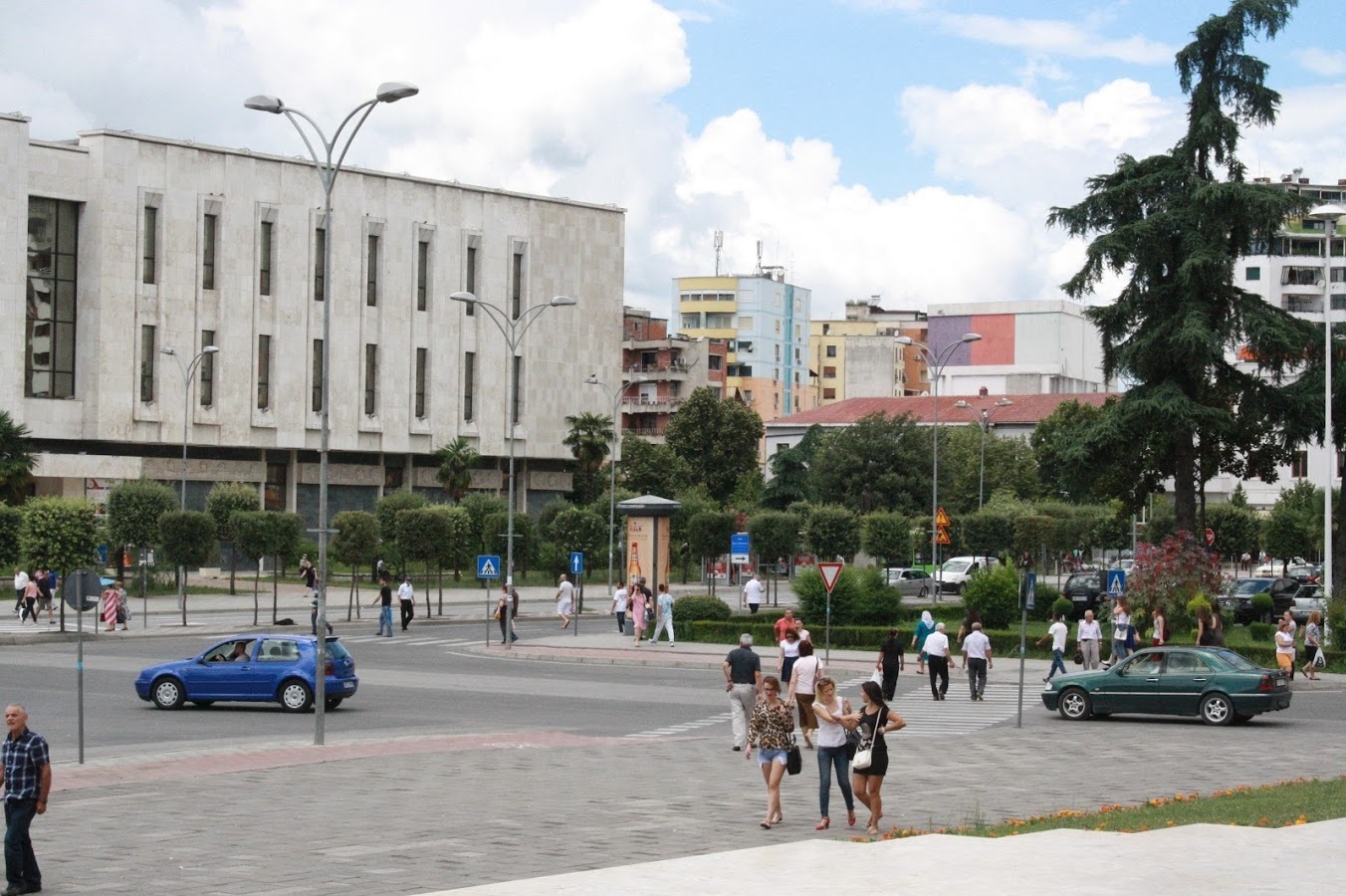Tirana’s youth find a window in the EU
The integration hopes of the region have not fully faded, especially in Tirana, Albania – the winner of the title European Youth Capital (EYC) for 2022, which was announced Thursday.
November 23, 2019 -
Epidamn Zeqo
-
Articles and Commentary

Street scene in Tirana. Photo: Adam Reichardt
Surprisingly, it was French President Emmanuel Macron, elected by many with the promise to save Europe from Marine Le Pen, who seemingly dealt a “fatal blow” to the EU enlargement process when he vetoed accession negotiations with Albania and North Macedonia. Macron’s revisionist position has been heavily criticised by his colleagues, in particular by German Chancellor Angela Merkel who maintains a status quo position on the region’s EU perspective.
Many stakeholders and commentators have called Macron’s decision or lack of decision a “historic mistake”. Indeed, similar to the Brexit referendum and the election of President Donald Trump, it has shattered the mirror (in this case of the EU perspective for the region outlined at the Thessaloniki Summit in 2003).
Having said that, the integration hopes in the region have not fully faded yet, especially in the capital city of Albania, Tirana, the winner of the title European Youth Capital (EYC) for 2022, which was announced Thursday November 21st in Amies, France (winner of the title for 2020, as well as the birthplace of President Macron) in a ceremony attended by none other than the French president himself.
Tirana’s programme for 2022 with the slogan Activ∞ (Activate) Youth written by youth organisations and supported by the Municipality of Tirana, was judged favourably by the independent jury against other competitive applications of the finalist cities, three of which are in the EU: Baia Mare, Poznań, Varaždin, and Kazan (Russia).

This is a unique opportunity to increase youth trans-national exchanges in Tirana, and to fund youth projects including, cross-border ones, with former and current EYCs. In particular, it helps to activate Tirana’s youth (Albania’s future leaders) to participate politically, to embrace diversity and European values, to create an innovative economy whilst at the same time protecting the environment and their own health.
Tirana EYC 2022 also shows the determinant role that cities like Tirana and Skopje have in their country’s EU integration process. Mayor Erion Veliaj, whom many consider to be a workaholic, deserves credit for developing an inclusive city with engaging networks and partners. This network helps address the shared urban challenges and puts children and young people at the focus of the sustainable development of Tirana. Through all this work, the municipality and Albania has been getting a more positive image and reputation throughout Europe.
Last year, I wrote an article on Albania’s many challenges for EU accession warning against the tendency to focus on the technical process which is managed by supranationalinstitutions like the EU Commission and European Parliament, whilst ignoring the determinant role of the political process managed by inter-governmental institutions like the EU Council. It has clearly created a myopic view on the region’s challenges as many actors did not foresee the current paradox.
On the one hand, the EU’s supranational institutions have judged, based on a transparent methodology with indicators, that both Albania and North Macedonia fulfil the technical conditions (e.g. progress on judicial and anti-corruption reforms) to immediately start accession negotiations. On the other hand, Macron has judged, probably based on domestic political calculations, that both countries do not fulfil the conditions and that the conditions are inadequate anyways. It is ironic that the France has defied the Commission’s recommendation because the last time it did so was to speed up, not slow down, membership for the Eastern Balkan countries of Bulgaria and Romania in 2007.
Moreover, France’s “Strategy for the Western Balkans” seems more concerned with catching-up with Germany’s engagement in the region by strengthening the role of the French Development Agency (AFD), rather than offering a superior enlargement process to better prepare candidate countries for membership. Macron should consider that the real problem is not foreign influence in the region, but that Albania and North Macedonia, proud European nation-states, are being barred from joining the European Union.
Western Balkan countries must self-organise just like the Central Europeans did with the Visegrad Group in the early 1990s to demand the chance to rejoin Europe as soon as possible. The youth of Tirana and of other cities in the region and in Europe have to be empowered so they can help build the city, the country, and the Union they want to live in today and tomorrow.
Epidamn Zeqo holds an MSc in European Political Economy from the London School of Economics and a dual MA in International Relations and Modern History from the University of St. Andrews. He is currently the Director of Strategic Planning and Implementation of Priorities Municipality of Tirana.
The views expressed in this opinion editorial are the author’s own and do not necessarily reflect those of the Municipality of Tirana.

































